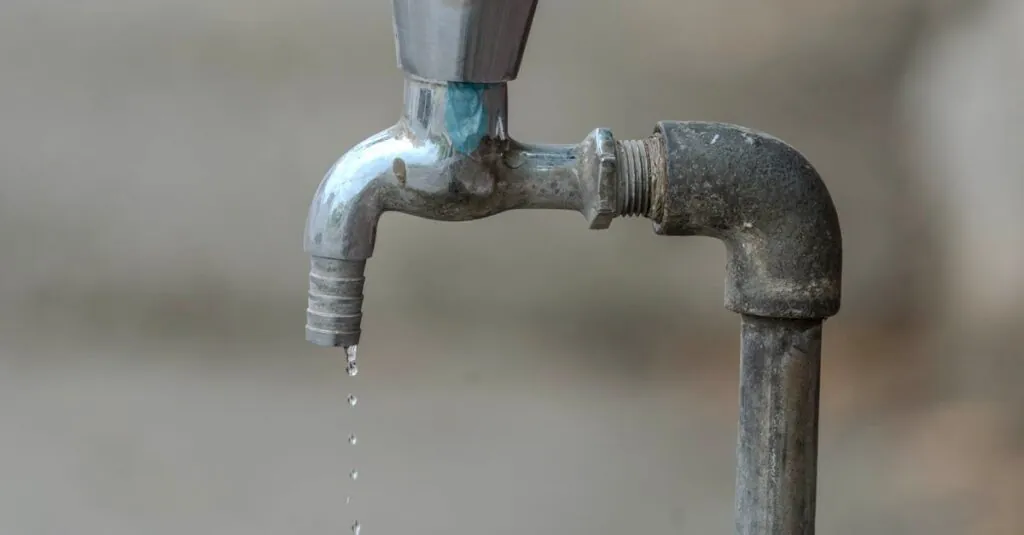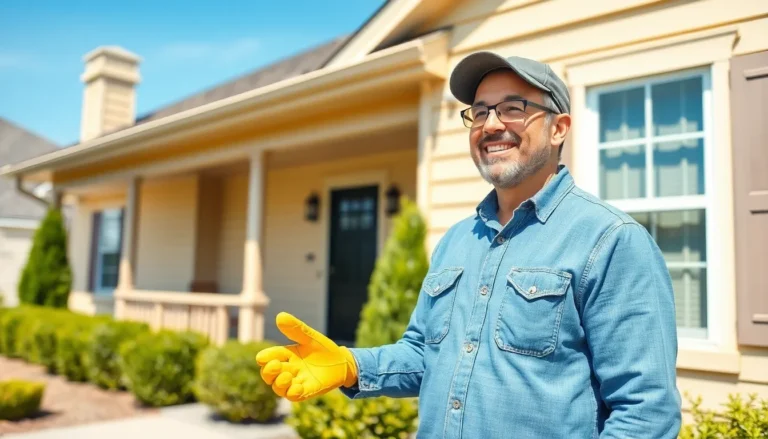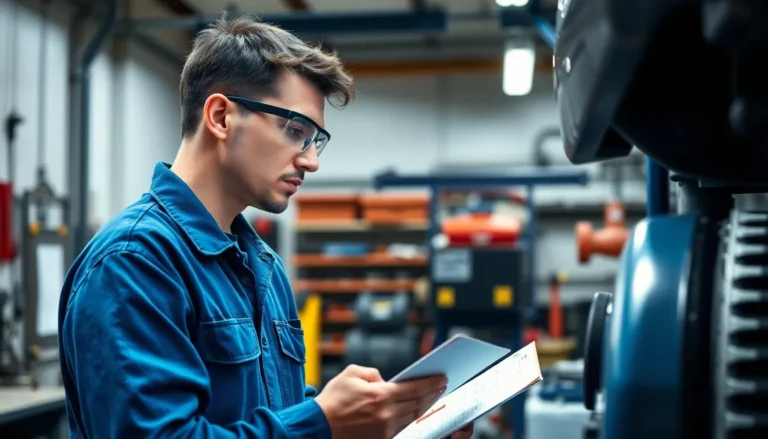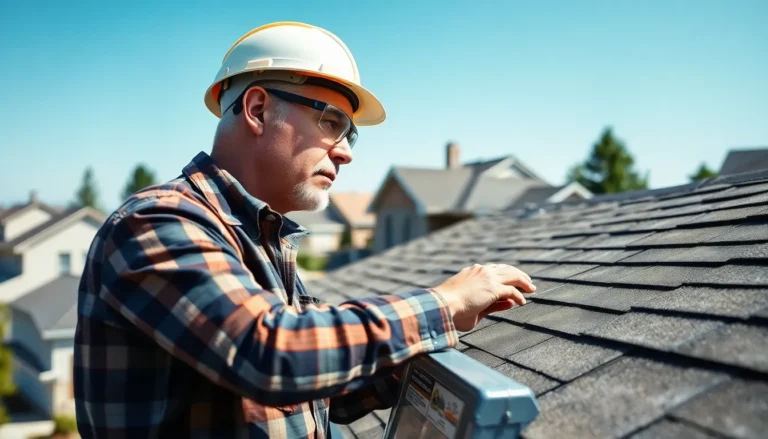Every homeowner knows that plumbing issues can strike when least expected. One moment you’re enjoying a peaceful evening, and the next, you’re knee-deep in water with a bewildered look on your face. But fear not! With a well-crafted plumbing maintenance checklist, you can keep those pesky problems at bay and maintain your sanity.
Table of Contents
ToggleImportance Of Plumbing Maintenance
Plumbing maintenance plays a critical role in preserving a home’s functionality. Regular checks prevent major issues, ensuring a reliable and efficient plumbing system.
Benefits Of Regular Inspections
Regular inspections reveal potential leaks or clogs before they escalate. Scheduling these evaluations promotes early detection of minor issues that could lead to significant damage. Inspectors identify areas needing repair, allowing homeowners to address concerns swiftly. Inspections help maintain water quality, ensuring safe drinking water throughout the home. Staying proactive leads to a longer lifespan for plumbing systems, enhancing their overall performance.
Cost Savings Over Time
Investing in routine plumbing maintenance leads to substantial long-term savings. Homeowners avoid costly emergency repairs by addressing small issues regularly. Routine maintenance reduces water bills by preventing leaks and ensuring efficient water usage. Maintenance can also help lower energy bills by optimizing hot water systems. Over time, savings from avoided repairs and improved efficiency outweigh the costs of regular inspections.
Essential Plumbing Maintenance Checklist
A plumbing maintenance checklist simplifies home upkeep. Regularly scheduled tasks help prevent major plumbing issues.
Monthly Tasks
Check faucets and toilets for leaks. Observe water meter readings for unexplained changes. Inspect the water softener for correct operation. Clean faucet aerators and showerheads to remove mineral build-up. Test the temperature setting on the water heater for safety and efficiency. Additionally, flush out the floor drain to prevent clogs. These tasks prioritize early detection of potential issues.
Seasonal Tasks
Examine outdoor hoses and spigots before winter. Winterize irrigation systems by blowing out water lines. Check sump pumps for optimal performance, especially before heavy rains. Clean gutters and downspouts to direct water away from the home. Review landscaping or grading that might affect drainage. Unclog drains with natural agents to maintain flow. Seasonal checks enhance plumbing reliability.
Annual Maintenance
Schedule a professional plumbing inspection yearly. Inspect the main shut-off valve for proper function during this service. Clean the main sewer line to avoid blockages. Test the pressure relief valve on the water heater for safety compliance. Check all visible pipes for corrosion or wear. Document any findings to track plumbing conditions. Annual maintenance helps prolong system lifespan and efficiency.
Common Plumbing Issues
Plumbing issues can interrupt everyday life. Identifying problems early can save homeowners time, money, and stress.
Signs Of Leaks
Leaks often start small but can lead to extensive damage if ignored. Common signs include damp spots on walls, ceilings, or floors. An increase in the water bill can indicate hidden leaks. Mold or mildew growth, along with a musty smell, frequently suggests moisture issues. Observing puddles or dripping faucets deserves attention. Homeowners should inspect water meters for unusual activity as well. Addressing these signs promptly can prevent costly water damage and preserve property value.
Clogged Drains
Clogged drains can disrupt household routines. Frequent slow drainage points to a potential blockage. Overflows in sinks, bathtubs, or toilets create immediate concerns. Homeowners often notice foul odors emanating from drains as another indicator. Grease buildup, hair, or debris typically contributes to clogs. Utilizing strainers can help prevent debris from entering the drainage system. Regular maintenance and clearing of minor clogs can keep plumbing working efficiently.
Professional Plumbing Services
Hiring a professional plumber ensures all plumbing systems remain functional. Recognizing when to call a plumber can prevent minor issues from becoming major headaches.
When To Call A Plumber
Homeowners should call a plumber when they notice multiple signs indicating a plumbing problem. Persistent leaks, for example, create water damage if allowed to continue. Unexplained increases in water bills often signal hidden leaks too. Additionally, problems like slow or clogged drains suggest deeper issues requiring professional attention. Unpleasant odors coming from drains or unusual sounds in pipes also warrant immediate action. Ignoring these signs can lead to more significant costs and further damage over time.
What To Expect From A Plumbing Service
Understanding what to expect from a plumbing service can enhance the experience. Plumbers typically start with a thorough inspection of the plumbing system. They identify problems and offer solutions tailored to the specific issue. Customers receive detailed explanations of the problems found alongside cost estimates for necessary repairs. Professional plumbing services often include recommendations for preventative maintenance, ensuring plumbing systems function efficiently long-term. Reliable plumbers prioritize customer satisfaction and clarity, making the process smooth and effective.
Maintaining a reliable plumbing system is essential for any homeowner. By following a detailed plumbing maintenance checklist, individuals can proactively address potential issues before they escalate. Regular inspections and maintenance not only save money but also enhance the overall efficiency of plumbing systems.
Being vigilant about signs of trouble and knowing when to seek professional help can prevent costly repairs and ensure peace of mind. With a commitment to routine checks and maintenance, homeowners can enjoy a well-functioning plumbing system that stands the test of time. Taking these steps today can lead to a more comfortable and stress-free living environment tomorrow.










